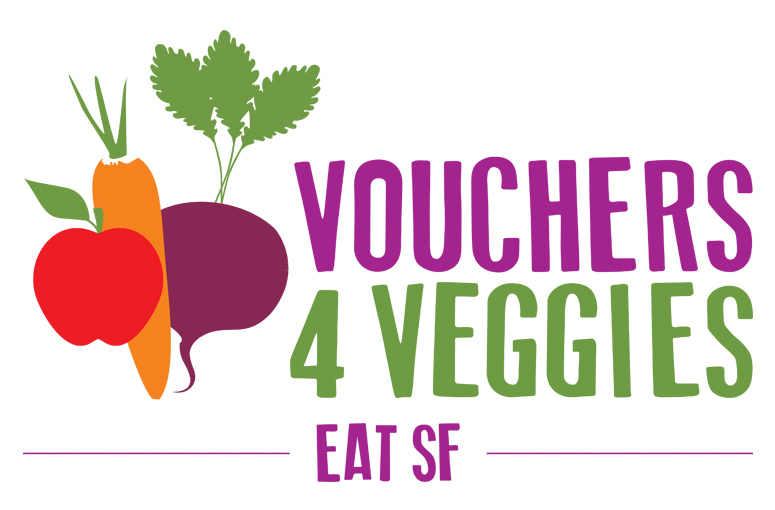Eating healthy to most may merely entail consuming more fruits and vegetables, whole grains, and lean protein. But eating healthy is an interplay of impacts on individual health, the environment, and our food system. In addition, in many communities, individuals lack healthy food options and resources needed to purchase healthy food. National Nutrition Month is a month to focus on healthy lifestyle habits and making smart food choices, while also recognizing the complexities to accessing healthy food for many individuals and the impact of our diet on our communities and world.
Research from Tufts Friedman School suggests poor eating causes nearly 1,000 deaths each day in the U.S. from heart disease, stroke or diabetes. These diet-related diseases disproportionately impact low-income communities and people of color. Reasons for this are complex, but efforts to improve community food environments can have a big impact on health. At EatSF, providing participants with a modest resource to purchase fruits and vegetables at local vendors has enabled our participants to, on average, improve their daily fruit and vegetable intake by 1 serving. One participant noted how EatSF has directly impacted his health – “My health has improved all around: blood pressure, weight, blood sugar. All of my exams have turned out better.” While healthy food access in all communities is important, resources to purchase healthy food are imperative to improving nutrition and, therefore, health.
To improve neighborhood food access, EatSF partners with Healthy Retail SF and local vendors committed to improving community health. Offering produce options to the community comes with risks as fruits and vegetables have a shorter shelf life than many other products. One of our vendor partners, Amigo’s Market in SF exclaims, “Since EatSF, customers have been purchasing fruits and vegetables, which has kept us focused on sales of fruits and vegetables.” Driving customers who purchase fruits and vegetables to vendors enables these vendors to sustain their produce offerings and reduce their own food waste.
Our food choices impact the environment. The way foods are grown and processed play a role in their impact on the environment. Choosing foods (like fruits and vegetables!) that lower the carbon footprint of our diet can make a big difference! Groups like Meals 4 the Planet make it a little bit easier by providing recipes focused on reducing the consumption of foods that are big contributors to greenhouse gas emissions. Making smart food choices not only impacts individual health, but also the future of our global food system.
This month, as we engage in improving our own health through healthy lifestyle habits such as healthy eating and physical activity, let’s consider the ways we can continue to improve the environments of all communities and nutrition for all!


